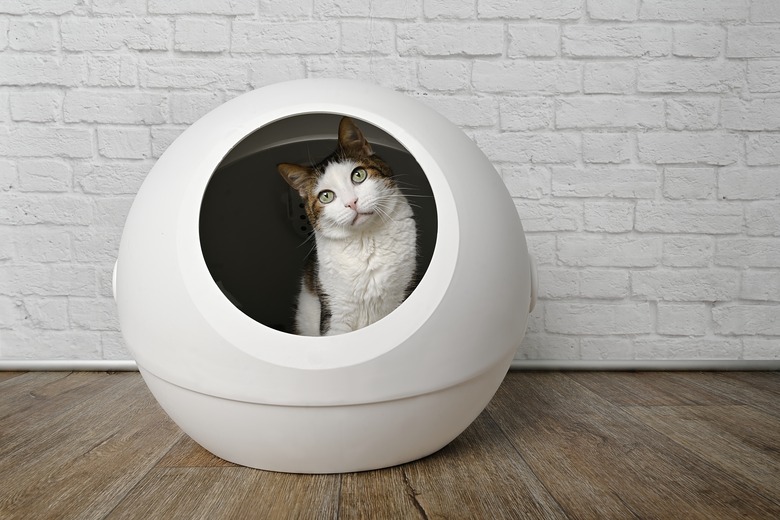What Could Cause A Smell Of Ammonia In A Home?
We may receive a commission on purchases made from links.
Ammonia is a colorless gas frequently used in farming and manufacturing products like textiles and plastics. It's also a powerful cleaning agent. Ammonia is marked by its foul, overwhelming odor, which can quickly overcome those who inhale the fumes. Any suspicious ammonia odor in a household should be investigated immediately. Some, including leaking ammonia cleaner in a confined space, can be dangerous, while other causes, like cat urine, are more of an annoyance than a danger.
Tip
An ammonia smell in your home can come from cat urine, leaking household cleaners, or leaking refrigerant from older-model refrigerators or RV refrigerators stored in your home. Ammonia smells carried from nearby factories or farms can also make their way inside.
Cat Urine Problems
Cat Urine Problems
Ammonia is a byproduct of pet waste, especially cat urine. Cat urine contains high level of urea, which is an ammonia compound and responsible for the strong ammonia smell. You may smell ammonia from your pet waste if you aren't cleaning up after your cat properly.
For example, cat litter that isn't changed often enough can lead to an ammonia smell. Or, your pet may have an incontinence problem or urinate inside for behavioral reasons. If these accidents aren't cleaned up promptly or discovered at all, you can smell ammonia. Additionally, your cat could have a urinary tract problem. If you are cleaning diligently and still smelling ammonia, encourage your cat to drink more water or have it examined by a veterinarian.
Certain Leaking Refrigerants
Certain Leaking Refrigerants
Most modern household refrigerators use Freon as a coolant, but older models used ammonia. Additionally, many recreational vehicles still use ammonia in small refrigerators, as ammonia is not flammable, whereas Freon is highly flammable. So an ammonia smell could come from leaking refrigerant, either from an older-model refrigerator or from an RV refrigerator stored in a home. This is likely the case if the ammonia odor is centralized around an older appliance. The smell could, however, waft into air vents as well, distributing it throughout the household.
External Smell Seeping In
External Smell Seeping In
Ammonia is widely used in both farming, as a fertilizer, and manufacturing various products, especially plastics. Additionally, ammonia is a byproduct of large-scale animal farms from the waste. Homes downwind of such operations may occasionally or frequently experience ammonia smells that waft into the house. You can test out this theory by asking neighbors if they're smelling ammonia in their own homes. Or check out a map to learn whether factories or farms are nearby. A zoning map obtained from your town may be especially helpful in identifying nearby causes of ammonia odors.
Leaking Household Cleaners
Leaking Household Cleaners
As a common household cleaner, ammonia is an ingredient in many solutions and products that can carry a faint ammonia smell. Investigate your cleaning products if you experience a sustained ammonia odor in your home.
Lift up the bottles to check for signs of leaking, such as a wet or dried moisture ring. Shake the bottles gently and watch for leaking cleaner. Test all caps and seals by tightening them and turning the bottles upside down to see if any leak. Dispose of any leaking bottles immediately according to your local laws. It's best to conduct this test in a well-ventilated area and wear protective gloves while testing, as any leaks or spills on your skin can be caustic.
